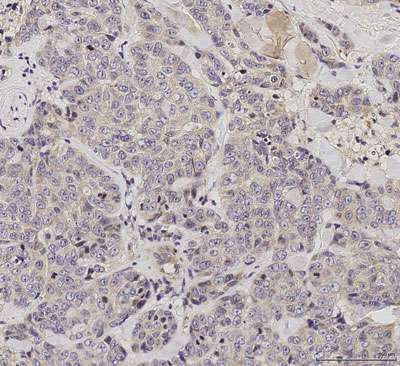Singapore research findings on breast cancer hold potential for new treatments

Scientists at the Bioinformatics Institute (BII) and Genome Institute of Singapore (GIS), research institutes under the Agency for Science, Technology and Research (A*STAR), have made discoveries that could lead to new ways of diagnosing and treating breast cancer. The scientists from both institutes used large-scale genomic data of breast cancers, demonstrating the use of computational techniques to increase understanding of diseases and improve patient treatments.
Breast cancer is the most frequent cancer diagnosed amongst women, with an estimated 1.67 million new cancer cases worldwide in 2012. In Singapore, more than 9,000 women were diagnosed with breast cancer between 2010 and 2014. Breast cancer is also the leading cause of cancer death in females locally.
Improving classification and treatment of prevalent type breast cancer
The BII scientists identified and characterised two new major classes of invasive ductal carcinoma (IDC), which comprise about 80% of all breast cancers. The increased knowledge of these genetically and clinically distinct classes will improve the diagnosis, prognosis and treatment of IDC, paving the way for personalised treatment with better patient outcomes.
Employing integrative bioinformatics and analyses, the scientists found that the intermediate grade (histologic grade 2) - assigned to approximately 50% of IDC cases - did not exist at the molecular level. IDC tumours in this grade would be better classified under the two major classes described, to enable better prediction of disease outcomes and for optimal treatment to be assigned.
Identifying new targets for treatment of aggressive breast cancer
In a separate study, scientists from GIS discovered a molecular mechanism that can be targeted to treat a more aggressive type of breast cancer, called triple-negative breast cancer (TNBC). The researchers identified a crucial protein whose increased activity promotes breast cancer metastasis and resistance to paclitaxel, a first line chemotherapeutic agent to treat breast cancer.
Additionally, treating this pathway may also contribute to the prevention of tumour recurrence, which is the main reason for breast cancer patient mortality.
While increased awareness of the need for early detection has led to improved survival in breast cancer patients, the development of improved treatment strategies remains important to further reduce mortality rates.
Dr Benjamin Seet, Executive Director of A*STAR's Biomedical Research Council, said, "These findings advance our understanding of breast cancer, which is the most common cancer affecting women in Singapore. More importantly, it allows us to develop precise and effective treatment strategies for these particular types of breast cancer, as well as to discover new drugs for the patients who do not get better."
More information: Zhen Ning Wee et al. IRAK1 is a therapeutic target that drives breast cancer metastasis and resistance to paclitaxel, Nature Communications (2015). DOI: 10.1038/ncomms9746
















